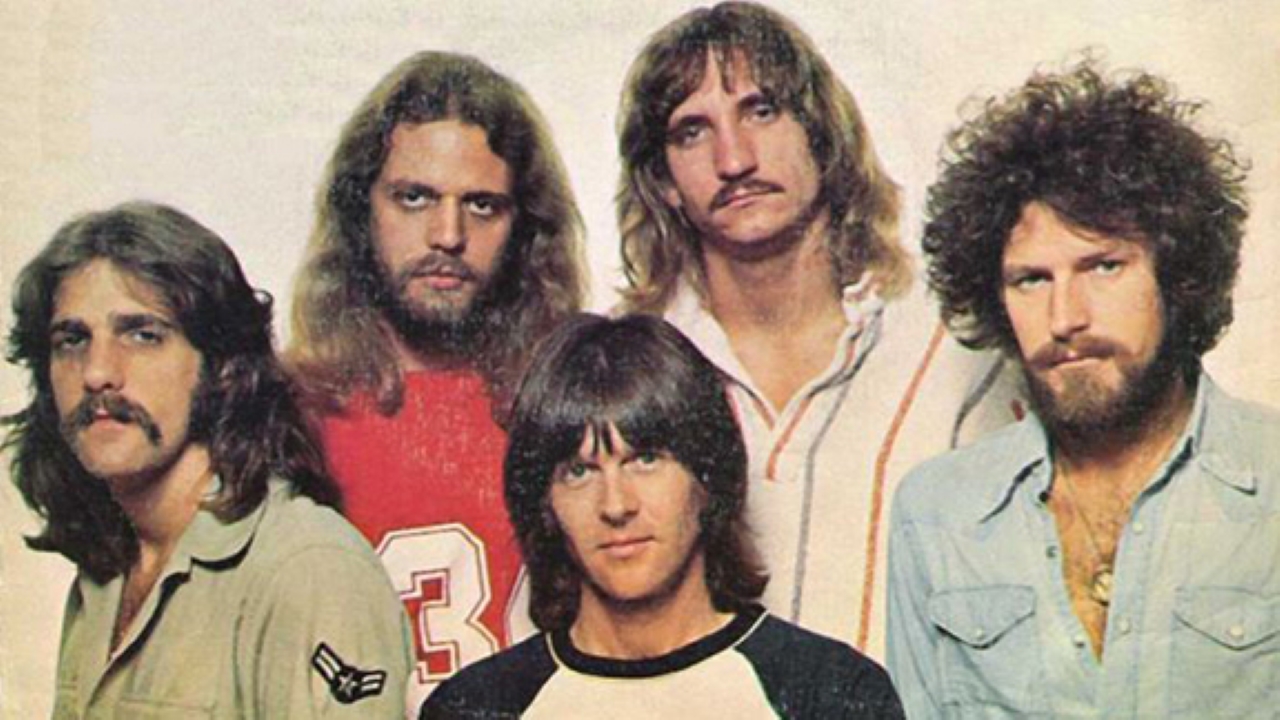🦅 The Eagles and the Pressure After Hotel California
By 1979, The Eagles were no longer just another successful American rock band—they were the band of the decade. Their 1976 album Hotel California had sold millions, spawned iconic singles, and defined an era. But success came with a heavy cost: relentless touring, creative exhaustion, and deepening personal conflicts.
When fans and critics asked, “What could possibly follow Hotel California?”, The Eagles themselves didn’t have a clear answer. They knew the pressure was enormous—every note they wrote would be compared to the towering success of their previous record. What followed was not only an album, but also a turning point that would eventually signal the end of their first era. That record was The Long Run.

🎸 Building The Long Run
Recording The Long Run was anything but easy. The Eagles entered the studio with grand ambitions: they had initially envisioned a double album, packed with fresh ideas. But as the months dragged on, inspiration became harder to find. Creative burnout and personal battles—including Glenn Frey’s perfectionism and Don Henley’s sharp criticism—slowed the process.
Instead of 20 songs, they could only manage 10. Yet those 10 became some of the most iconic and enduring tracks in their catalog. The tension in the studio mirrored the tension in their personal lives, but somehow, it was transformed into music that captured the late-’70s mood perfectly: cynical, raw, but still irresistibly catchy.
🌆 The Sound of Late ’70s Rock
The Long Run was steeped in the cultural atmosphere of 1979. Disco was still dominating the charts, punk was breaking through with its raw energy, and the polished California sound The Eagles had perfected now faced competition from newer, edgier movements.
Henley later admitted that part of the album was a direct response to critics who accused them of being “soft.” With songs like “Those Shoes” and “In the City”, The Eagles leaned into darker tones, heavier grooves, and lyrics that reflected urban decay, moral fatigue, and the weariness of fame.
Yet even with experimentation, the core of The Eagles remained intact: immaculate harmonies, unforgettable guitar lines, and a blend of rock, country, and soul that still sounded like nobody else.
💔 The Ballads That Still Hurt
No Eagles album would be complete without the ballads, and The Long Run delivered some of their most bittersweet. “I Can’t Tell You Why”, sung by Timothy B. Schmit, became an instant classic. With its soft, aching delivery and smooth arrangement, it stood as one of the band’s most vulnerable songs.
Meanwhile, Glenn Frey’s “The Sad Café” was almost a farewell before the band even knew it. The song looked back on their shared youth at the Troubadour club in Los Angeles, where their journey had begun. It carried a tone of nostalgia, almost mourning, as though the golden age of the band—and the culture they helped define—was already slipping away.
These tracks gave The Long Run its heart, balancing the rock swagger with tender reflection.
⚡ The Hits That Kept Them on Top
Despite all the struggles, The Long Run produced some undeniable hits. The title track, “The Long Run”, became a signature anthem—a sarcastic yet soulful song about endurance, both in love and in the band’s own career.
But it was “Heartache Tonight”, co-written with Bob Seger, that electrified audiences. The song shot to No. 1 on the Billboard Hot 100, with its stomping beat and bluesy edge proving The Eagles could still craft stadium-sized rockers. Glenn Frey’s lead vocal brought an urgency and fire that critics had doubted they still possessed.
The album also delivered fan favorites like “Those Shoes” with Joe Walsh’s talkbox guitars, and “In the City”, which Walsh had originally recorded for the soundtrack of The Warriors.
🍷 Behind the Scenes: Cracks in the Band
Though the record succeeded, it came at a high price. The Eagles’ relationships were crumbling. Creative disputes, substance abuse, and personal bitterness all intensified during the making of The Long Run.
By 1980, those tensions boiled over famously during a concert in Long Beach, when Glenn Frey and Don Felder nearly came to blows on stage. It was clear the band could no longer function as a unit, and The Long Run effectively became their swan song of the era. They would break up shortly after, not to reunite until 1994.
Thus, the album became a document not just of their music, but of their unraveling.
🌟 The Legacy of The Long Run
Although The Long Run is sometimes overshadowed by Hotel California, it has aged into one of the Eagles’ most fascinating records. It marked both the height of their commercial success—another multi-platinum album—and the end of an era.
Songs like “I Can’t Tell You Why” and “Heartache Tonight” remain staples on radio, while “The Sad Café” continues to move fans with its elegiac beauty. For a band under immense pressure, producing an album of such enduring quality was nothing short of remarkable.
More importantly, The Long Run symbolized the difficult truth every band faces: you can’t stay on top forever, but if you leave behind great music, your influence never really ends.
🎶 The Song That Defines It
If there’s one track that captures the spirit of The Long Run, it’s “Heartache Tonight.” A song of release, swagger, and celebration, it embodied the resilience of The Eagles in the face of mounting challenges. It wasn’t about perfection—it was about passion. And that’s what still makes it timeless.